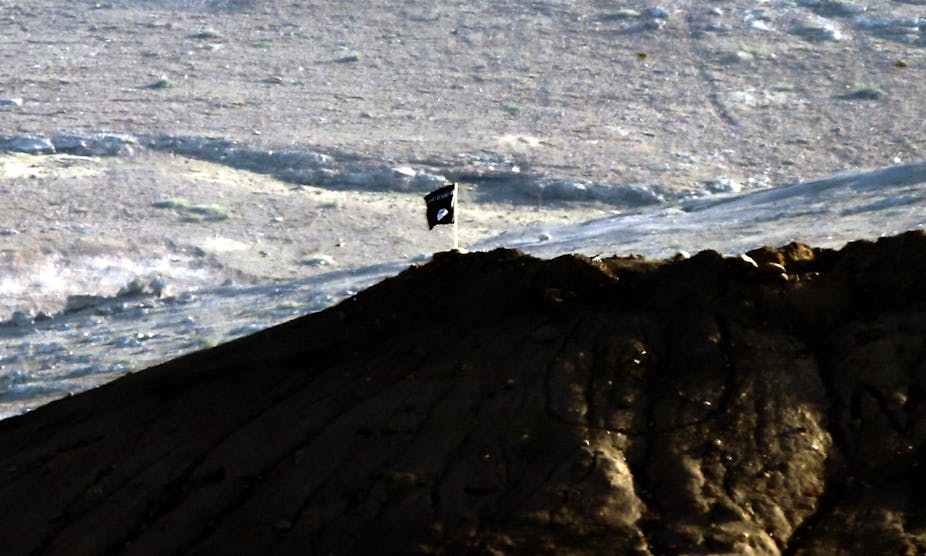Western strategists are routinely taught to remember a number of maxims, one of the most popular being that “the enemy has a vote”. This fundamental truth of strategy has so far gone apparently unheeded in the fight against Islamic State, which has proved highly resilient to the air strike campaign.
And now, IS is threatening to overwhelm the town of Kobanê on the Syrian-Turkish border. That major advance not only proves the ineffectiveness of coalition air strikes; it also highlights that the only logical way to reverse IS’s momentum, rather than merely halting it, will ultimately be via the use of ground forces.
The Western-Arab coalition has made some headway in its largely aerial strategy, stemming the flow of foreign fighters trying to join IS while choking the group’s numerous avenues of external funding and gradually degrading its financial self-sufficiency.
But as Kobanê shows, IS is still able to manoeuvre deftly on the ground, to conduct operations and threaten a town bordering a NATO country. Clearly, a new strategy is needed – but it is still unclear how, where, and by who the decisive blow against IS will be delivered.
Initiative and resiliance
The Iraqi armed forces have proved ineffective against IS, having suffered numerous routs. Kurdish forces in northern Syria, the next best hope, are now under huge pressure; the fall of Kobanê will be a major blow to their credibility and morale.
This leaves the coalition banking on either Free Syrian opposition proving able where a professional military in Iraq (one armed, trained, and financed by America for almost a decade one must hasten to note) has not, or on direct Turkish intervention.
While talk of patience and resilience continues, of preparing for a campaign that may last years, Western leaders have omitted one unpalatable reality. IS clearly does not see this as a campaign of attrition set to last years; it obviously intends to continue winning major tactical gains as quickly as ever, defeating all foes in its path and persisting in the face of air strikes. While the coalition dithers over whether to commit to a ground option somewhere, IS is not slowing down or tempering its ambitions.
IS has presented the coalition with a “ground truth”, a military reality that has yet to be accepted. It holds the initiative, it has the momentum, and there is no ground force that has yet proven capable of stopping it.
No amount of air strikes or degrading strategy will stop an enemy force that has reached a critical mass of self-sustainability and which also holds in the initiative in choosing where to fight and when in the absence of any ground force to stop it.
No plan B
Ultimately, IS’s resilience should remind us of a simple historical lesson that has apparently been forgotten; air power alone cannot win a war.
This much was demonstrated during the Kosovo War in 1999, where a sustained and far larger air campaign than that being waged against IS still failed to halt hostilities; it was only after a credible threat of action by NATO ground forces that a lasting political solution was achieved.
Against IS, the hope so far has been that somebody else’s ground forces (it’s not clear whose) will ultimately step in to deliver such a tactical coup, with air power serving as a support.
The situation in Kobanê is proof positive that this strategy is not working, or is at least at serious risk of failure. The coalition seems to have been caught without a plan B; its partners’ patience may endure, but this will be meaningless as long as IS keeps winning decisive battles.
The only way to win is to accept the reality that IS will only be stopped by a major military defeat. And there are only two sure ways to achieve one: to credibly threaten ground action in a manner that forces IS to concentrate its resources in specific areas, so that coalition air power can destroy its capability; or, more likely, with a deployment of ground forces.
Only then will the battle with IS take place a time and place of the coalition’s choosing – and only then will IS truly start to be driven back.

